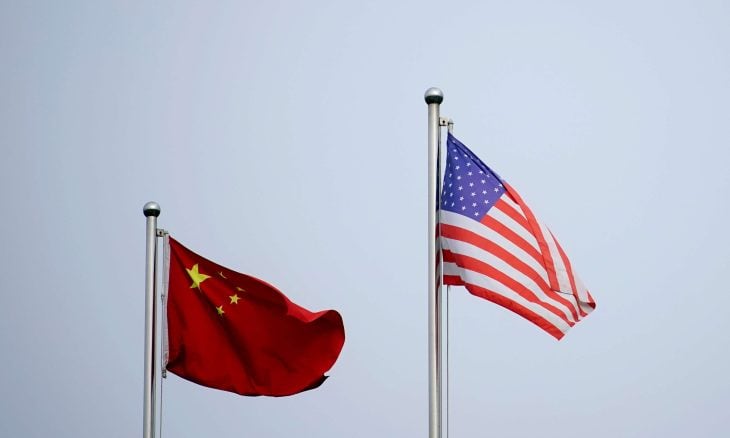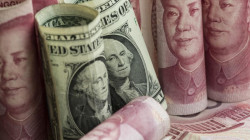Geopolitical Tensions Dampen Chinese Business Activity in the United States

Shafaq News/ Chinese business activity in the United States has reached its lowest point in nearly two decades, signaling the overshadowing impact of geopolitical tensions between the two major nations on their financial interactions.
A report published by the Financial Times on Friday highlighted a notable decline in mergers and acquisitions involving Chinese companies in the United States. Year-to-date figures reveal that such investments amounted to approximately $221 million, marking the slowest investment since 2006. In contrast, the corresponding period of the previous year saw investments reaching around $3.4 billion.
The decline in Chinese investment in the United States coincides with a rise in internal Chinese investments, showcasing the influence of geopolitical tensions on Beijing's financial engagement with the United States. These investments have historically served as a conduit for China's access to lucrative Western markets.
The trend is mirrored in other global markets as well. Chinese investments in Germany, for instance, have dwindled to approximately $189 million, marking the lowest level in nearly a decade. Similarly, investments in the United Kingdom amount to $503 million; in Australia, they reach around $228 million.
Recent events, such as the downing of a suspected Chinese spy balloon by the United States, have accentuated the deteriorating relationship between the United States and China. Additionally, the launch of a congressional committee focused on China, heightened scrutiny of trade relations, and Washington's imposing restrictions on Beijing's access to semiconductor technology have further strained relations.
US Secretary of State Anthony Blinken engaged with Chinese leaders during his visit to China last month to mitigate the escalating tensions. Both sides acknowledged the importance of preventing competition from escalating into full-blown conflict.
US Treasury Secretary Janet Yellen embarked on a four-day trip to China earlier this month, advocating for market reforms in the world's second-largest economy. Yellen emphasized that while the United States does not seek a complete decoupling of economies, it remains concerned about expanded subsidies for state-owned and domestic firms, barriers to market entry, and punitive measures against US companies.
Yellen's visit aimed to enhance communication and foster a stable and constructive relationship between the two nations while protecting national security interests and human rights.
The diplomatic outreach by the United States comes ahead of a potential meeting between Presidents Joe Biden and Xi Jinping, scheduled to take place during the G-20 summit in New Delhi this September or at the Asia-Pacific Economic Cooperation Organization meeting in San Francisco in November.





